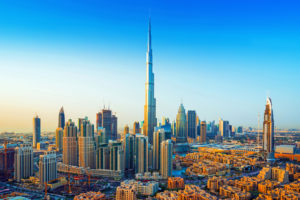The United Arab Emirates (UAEs) recently-launched permanent residency scheme could be a game changer and provide a fillip to the real estate market. This will be achieved by encouraging expatriates to invest in property and settle in the Gulf nation, industry experts said.
The United Arab Emirates recently launched a permanent residency scheme to woo wealthy individuals and exceptional talents, a move that could attract more professionals and businessmen to the country. The “Gold Card” programme unveiled by UAE Prime Minister, Sheikh Mohammed bin Rashid Al-Maktoum, is open to investors and “exceptional talents” such as doctors, engineers, scientists, students and artists.
“This initiative further positions the UAE as an innovative destination for business leaders, providing millions of people with high-quality opportunities in a tolerant, safe and productive environment,” he said.CEO of Allsopp & Allsopp, Dubai estate agents, Lewis Allsopp said this is a huge milestone for the UAE and for the Dubai property market.
“Most expatriates have a money-making mindset when they move to Dubai with a short-term plan. The UAE Cabinet’s decision to enforce a Gold Card for permanent residency, now allows expatriates to look at Dubai as a home rather than a temporary plan,” he added.
The permanent residency is a good step forward and likely to boost the fortunes of its property market, a statement from the Property Finder said.It said that around 6,800 people have been granted permanent residency and a ‘Gold Card’ in the first round of applications.
“This is a game changer for the real estate industry in Dubai. We are yet to get full details of the Gold Card program, such as who can qualify and the terms. However, it’s definitely a step in the right direction and very much needed to stimulate investment,” Lynnette Abad, Director of Research and Data, Property Finder, said.
Short and long-term visas
Currently, short-term visas linked to employment hold back expatriates from investing and owning real estate in the UAE. They prefer to remit savings to their home countries instead. The Gold Card scheme will encourage expatriates to make long-term investment goals, including owning a property.
The UAE already offers long-term visas valid for five to 10 years to property investors, entrepreneurs and people with exceptional talents without the need for a local sponsor. A minimum investment of $13,61,225) is needed to obtain a five-year visa, and double that amount is necessary for a decade-long visa.
“Initiatives and new regulations like these are expected to have a positive impact on the real estate market in Dubai. The more the government offers to entice talent and companies, the easier it will be for them to settle here and call Dubai home. Then, the investment should follow suit,” Abad said.
The two initiatives sparked interest from real estate investors in Dubai’s residential property at the time.The latest gold card system, which offers much more incentives to investors, is likely to fetch buyers for around 59,800 properties scheduled for delivery in Dubai this year.
The new visa rules, including the issuance of gold card, have made it easier for those who view Dubai as a hub city to settle and become contributors to the overall economy. This would also help in soaking up current and upcoming supply and help the market in price stabilisation.

